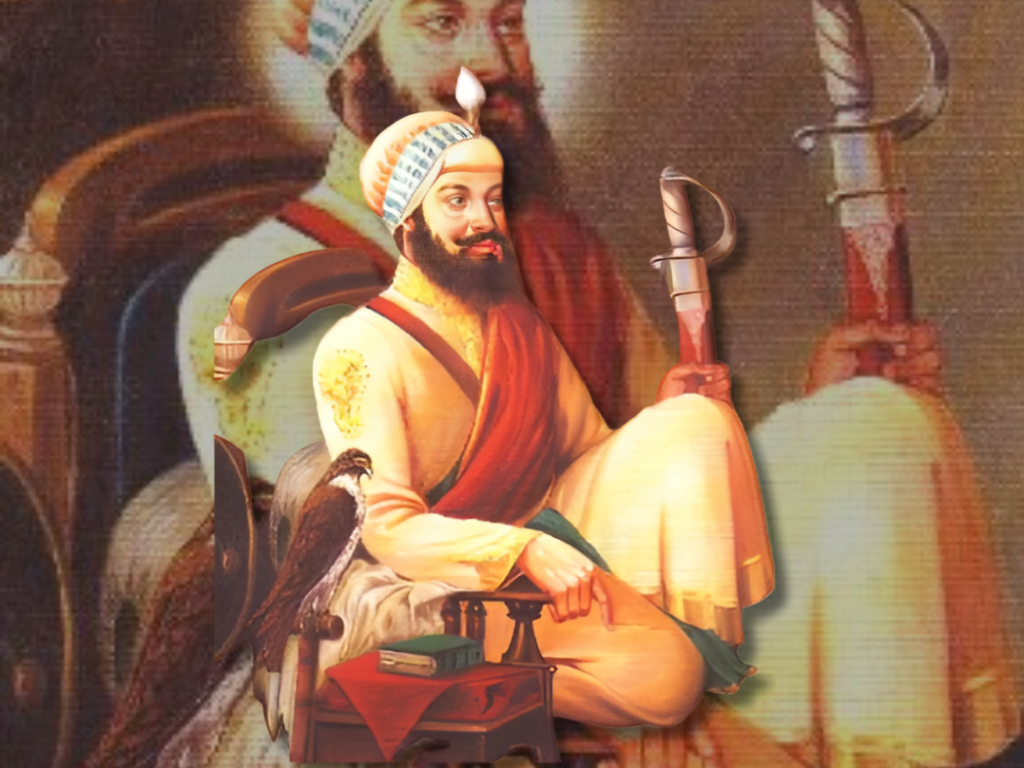
Prakash Purab of Guru Hargobind Sahib Ji, offers an opportunity to reflect on the life of the Sixth Sikh Guru and the enduring legacy of the “Saint-Soldier” ideal he championed. Born in 1595 at Guru Ki Wadali, Amritsar, Guru Hargobind Sahib Ji assumed guruship at a young age following his father Guru Arjan Dev Ji’s martyrdom. From that moment, his leadership wove together spiritual depth and temporal responsibility: he taught that devotion to the Divine must be accompanied by readiness to defend justice and protect the vulnerable.
Under the guidance of Baba Buddha Ji, the young Guru mastered Punjabi script and immersed himself in martial training and horsemanship. This dual cultivation prepared him to wear — and live by — the twin swords of Miri (temporal authority) and Piri (spiritual sovereignty). He urged Sikhs to contribute resources for collective defense, organized a disciplined army, and founded the Akal Takht opposite the Golden Temple, establishing a seat of political authority alongside the spiritual center. His steadfast resolve was evident when, imprisoned at Gwalior Fort by Emperor Jahangir, he secured not only his own release but also the freedom of 52 fellow captives—a historic event celebrated today as Bandi Chhor Divas.
Yet Guru Hargobind Sahib Ji’s valor was always tempered by compassion. Stories of his magnanimity—granting opponents fair chances in combat, treating captives with dignity, and forging bonds across faiths, as in his friendship with Sheikh Miyan Mir—illustrate how he balanced strength with mercy. His sizable physical presence spoke of courage, but it was his benevolent actions and concern for community welfare that truly defined his leadership.
Observing Prakash Purab, Sikh communities revisit these themes. Congregational prayers and kirtan recount his deeds and teachings, reminding us that spirituality cannot be separated from action. Sewa (selfless service) and community solidarity are emphasized: feeding the hungry, supporting those in need, and standing for justice in daily life echo the Guru’s own commitment to protecting the oppressed. Reflections often highlight how “Saint-Soldier” principles remain relevant: in a world facing injustice, environmental crises, and social divides, the call to uphold truth, serve humanity, and maintain unshakeable faith resonates deeply.
Celebrations typically combine devotion and remembrance: Akhand Path readings reflect on passages affirming resilience; hymns evoke the spirit of courage; and gatherings may include discussions on how to embody the Guru’s values today. Langar serves as a living symbol of equality, inviting people from all backgrounds to share a meal prepared and served in his name. For many, Prakash Purab also inspires personal resolutions: to balance inner growth with outward action, to cultivate fearlessness tempered by kindness, and to contribute positively within one’s own sphere—be it family, workplace, or community.
As we honor Guru Hargobind Sahib Ji, we celebrate a model of leadership rooted in humility before the Divine and firm resolve in defense of righteousness. His life teaches that true devotion empowers us to face adversities with courage, to extend compassion to others, and to build societies where dignity and justice prevail. May the remembrance of his Prakash Purab guide each of us to live with unwavering faith, to serve selflessly, and to stand firm for truth in every circumstance.
Waheguru Ji Ka Khalsa, Waheguru Ji Ki Fateh.

